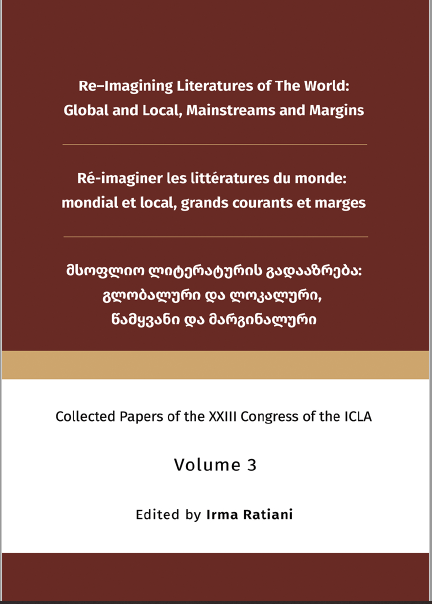Literature as Alternative History (Post-Soviet Conflicts in Georgian Prose)
Main Article Content
Abstract
In the new millennium, Georgian prose began consistently shifting moral coordinates, this time on the map of contemporary history. The totality of the works cited here can be considered as an example of– the example, that is, of a fictional narrative assimilating the no man’s land untouched by historiography. The most ethically confrontational is Otar Chiladze’s novel, “Godori” (2002). Otar Chkheidze wrote in the introduction to his pertinent novel “White Bear” (1999). Guram Odisharia (“The Return to Sokhumi” ,1995), and Gela Chkvanava (“Toreadors”, 2006) describe the war inAbkhazia with shocking realism and honesty in his short stories. Marine Elbakidze’s story, “The Exchange” (2012) seems to continue Gela Chkvanava’s tragic plot. The term “exchange” meant the exchange of the prisoners and the deceased in this pointlessly started and disgracefully ended military conflict. Nugzar Shataidze’s moving story with an exotic title, “A Voyage to Africa” (2003). Tamta Melashvili’s pacifist “Jinxing” (2015) tells the story of teenage girls living in a village within the conflict zone with fine psychological insight. Whatever took place in the said zone during the 2008 “August war” is told with documentary precision by Guram Megrelishvili and Tamaz Demetrashvili in their “Iratta.ru” (2010). And, finally, we should mention Zaza Burchuladze, who shocked his readers with his grotesque “modelled chronicle” under the title “Adibas” where he employed dark humour to carry out the Russian military plan (of taking over Tbilisi) as a backdrop for the elite of the capital, whose leisurely life goes on unchanged by the event…
Thus, step by step, during the last decade, Georgian prose has taken up the mission of “alternative history,” surely in part out of hope that such would create an ethical alternative to counteract the chaos of values and views that is most typical for the post-Soviet societies torn between authoritarianism and democracy.
